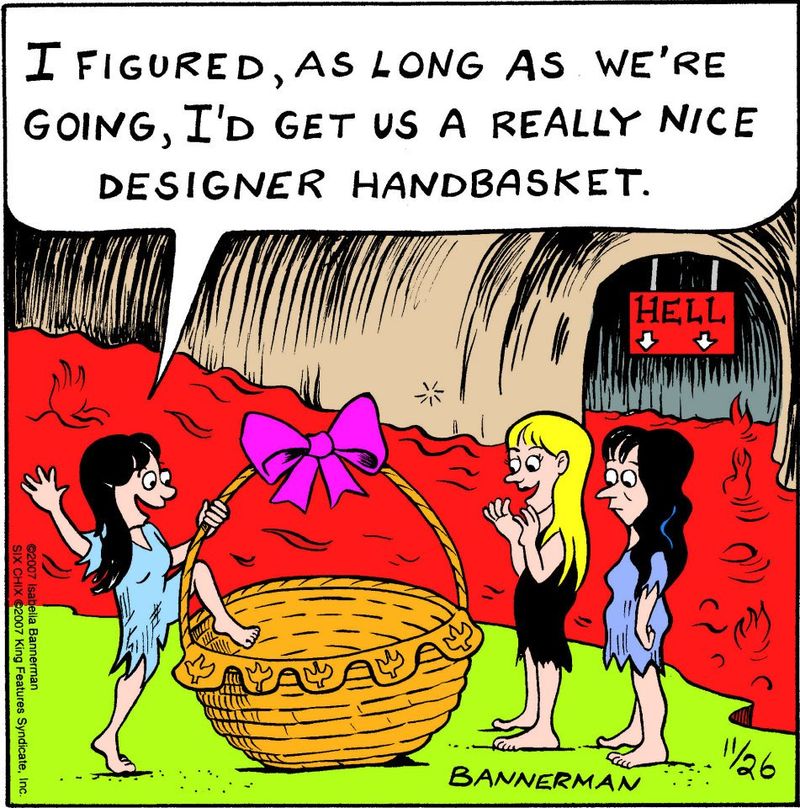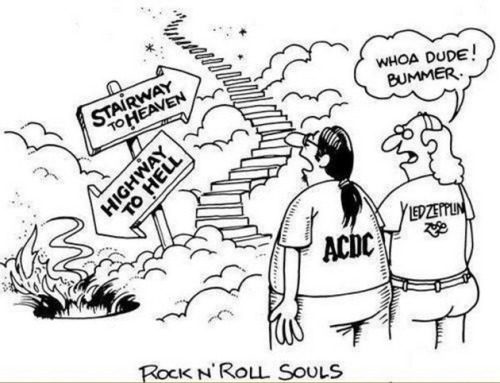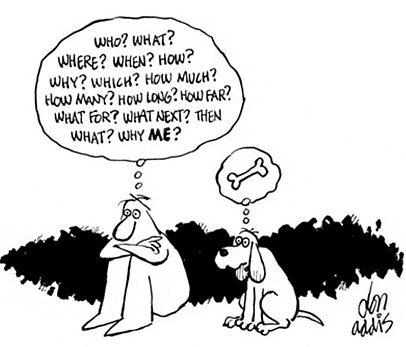
Sermon delivered by Robert Tucker at First Unitarian Universalist Fellowship of Houston on August 13, 2017
Bob is a regular reader of The Life and Times of Bruce Gerencser. I found his sermon to be quite insightful, so I asked him if I could post it here. Bob graciously said, yes.
INTRODUCTION
Today I will be speaking about a form of theology called Religious Naturalism. Naturalism is understood very expansively—all our perceptions, language, and values, along with all inventions and mental constructions, plus human relationships. That is, naturalism is not only a tree, but also the poet and her poem about a tree, and the desk made from the tree, the quantum theoretical understandings of the subatomic particles of the tree, and the decay, disease and death of the tree. Religion is understood as a magnificent human invention within nature, embracing all our experiences of wonder and miracle, gratitude and compassion, joy and forgiveness, and the human ability to corrupt, pervert and destroy even human’s finest accomplishments. Naturalism believes there are no substantiated reasons to view as real anything independent of the natural order, including deities. However, naturalism understands religion to be a humanly-created mental and physical part of existence that, clustered along with language and music, make up the lavish outpouring of human creativity.
For our reading today, I am using selections from Albert Einstein. Einstein had much to say about religion both in strongly denying he was a believer and also in strongly opposing the dogmatism of the non-believer:
… I am, of course, and have always been an atheist. … It is always misleading to use anthropomorphic concepts in dealing with things outside the human sphere—childish analogies. We have to admire in humility the beautiful harmony of the structure of this world—as far as we can grasp it, and that is all.
I have repeatedly said that in my opinion the idea of a personal God is a childlike one, but I do not share the crusading spirit of the professional atheist whose fervor is mostly due to a painful act of liberation from the fetters of religious indoctrination received in youth. I prefer an attitude of humility corresponding to the weakness of our intellectual understanding of nature and of our own being.
What separates me from most so-called atheists is a feeling of utter humility toward the unattainable secrets of the harmony of the cosmos.
Then there are the fanatical atheists whose intolerance is the same as that of the religious fanatics, and it springs from the same source . . . They are creatures who can’t hear the music of the spheres.
To a friend who asked if the rumor were true that Einstein had converted, Einstein wrote:
It was, of course, a lie what you read about my religious convictions, a lie which is being systematically repeated. I do not believe in a personal God and I have never denied this but have expressed it clearly. If something is in me which can be called religious then it is the unbounded admiration for the structure of the world so far as our science can reveal it.
Next is a quote that I will repeat at the end of this sermon since it seems to incorporate the underlying dimension of Religious Naturalism.
The most beautiful and most profound experience is the sensation of the mystical. It is the source of all true science. He to whom this emotion is a stranger, who can no longer wonder and stand rapt in awe, is as good as dead. To know that what is impenetrable to us really exists, manifesting itself as the highest wisdom and the most radiant beauty which our dull faculties can comprehend only in their primitive forms—this knowledge, this feeling is at the center of true religiousness.
It’s been a long time since I was an active, full-time, settled minister in a church, and I have lost touch with the individual stories of those who join liberal churches these days. Of course, there never was a cookie-cutter experience for all. Still, back when I was so involved, I found three types of experiences dominant:
- First, there were those who found religion (usually Christianity, since Christianity is the main religion of culture in these parts) ineffective in helping in a time of extremity; for example, no promised easing of unceasing pain through prayer or Bible reading.
- Another group came out of churches where there had been some financial or sexual misdeeds by a leader in the church. Disgust sent them looking.
- But, by far, the largest group of new members came from individuals who just found their religious beliefs crashing when they bumped up against rational and scientific understandings of the world.
What is rational about a virgin conceiving by a divine spirit, about a dead person returning to life and, then, rising to heaven? And where is heaven anyway, when, in looking up, one can only see sky—sky almost back to the Big Bang, according to the Ultra Deep Field probing of the Hubble telescope? And if God is in heaven (as Jesus states in the Lord’s Prayer) and there is no heaven, only sky, then it is reasonable to assume that there is no God that can call heaven home. When confronted with the edifice of science and reason, many religious beliefs simply crack, crumble, and come tumbling down.
One thing I did notice though, was that, from whatever unwanted baggage people escaped, they were either uninterested in or unable to assemble a new belief system. They lived with denial, often tinged with regret, disgust or anger. For those who were, or are currently, in that situation, Religious Naturalism has the ability to delightfully bind two aspects of life—science and religion—that often get separated.
You have no doubt heard the comment made by last century’s humorist and actor Robert Benchley: “There are two kinds of people in the world. Those who divide everybody into two kinds of people, and those who don’t.” Religious Naturalism is a ‘non-divider.’ It favors connections among people and ideas, both/ands rather than either/ors. In other words, Religious Naturalism has a very high tolerance for ambiguity.
One sharp religious divide is found in those who believe in God and those who do not believe in God—theists and atheists to use official theological terms. Being a non-divider myself, I have never found the argument between God-believers and God-deniers enticing enough to spend time on the debate. As a consequence, I gladly moved into a theology where my atheism and my theism cohabit, although, to be perfectly honest, when I state my position to both well-dug-in theists and atheists, raised eyebrows along with looks of disapproval-to-incomprehension are the return I get. In fact, I hesitate to use the words theist and atheist because the words immediately classify, catalog and pigeon-hole.
One cannot live in this society and not be aware of the dogmatism inherent in the ‘Jesus is the only way’ crowd. It fills churches, publications and the airways. What is less obvious, but just as real, is the dogmatism in atheists, a reality to which Einstein, more than once, points. Dogmatism is dogmatism, under whatever label, and dogmatism is persona non grata in Religious Naturalism. Religious Naturalism acts as a prophylactic against the dogmatisms of doubt as well as the dogmatisms of credulity.
Now, people can be dogmatic if they want to be, that is their choice. However, it is when they clothe their certainties, either in the piety of belief or in the reductive certainty of science, that I find myself ready to move on. So, Religious Naturalism is welcome space to avoid the dogmatisms.
When I mention this aspect of my Religious Naturalism, my credibility with scientific atheists plummets, and theists, although at first pleased, are appalled when I explain myself. Still I persist.
I find another drawback in both believers and unbelievers’ positions in the way they flatten life. They suck out the wonder in the rich tapestry of beauty, love and delight, often reducing truth to that which is dogmatically correct or scientifically verifiable. They can’t, as Einstein put it, “hear the music of the spheres.” Again, Religious Naturalism allows one’s senses, mind and imagination to be immersed in delight.
Let me now piece together Religious Naturalism, a religion containing both no God and God. I will briefly develop this thought in two areas.
- First, in our natural world, our observation of the wonders/miracles all around encourages us to see the extraordinary in the ordinary.
- Second, coming to terms with the religious language we humans inherited, and now so-easily reject, can offer new ways of understanding and talking about our world.
PART ONE: Our Awesome Natural World
Religious Naturalism, viewing total reality in the natural world of which we are a part, encourages a particular way of looking at the world—finding the wonder and the miracles all around. In other words, if what we have is only this world, let’s delightfully make the most of it.
- Today when you get into your car to return home, you will turn the key in the ignition and 180 horses will leap up ready to carry you swiftly, safely and comfortably to your destination, and the tires are so good you will not be carrying a tire repair kit, as we all once did. Wondrous!
- Or, when home, you will turn on the light-switch and marvelous technology will wire you all the way back to extraction from the earth of coal and gas. Awesome!
- Or, you will look up in the sky at sunset and find yourself transported by the beauty of the sun’s rays reflected on the clouds. Stunning!
- Or, on reflection, you may find astonishment by the realization that family and friends put up with you and love you year after year, even at times when you know you were not all that lovable. Incredible!
- Or, you may go to the symphony this afternoon and be stunned by the miraculous array of sixty professional musicians, each of whom is highly trained and each of whom has a different conviction about how the music of a particular piece ought to be played. Yet, each submits her-or-himself to the directions of a conductor—and you hear beautiful music rather than cacophony. Magnificent!
Religious Naturalism is religious in that, in one’s experiences, all the feelings associated with religion are generated this world—wonder and miracle, gratitude and compassion, joy and forgiveness. A way of labeling this is to use the humanly-created word ‘God,’ or better, C∞D. No person has written more pointedly of this aspect of Religious Naturalism than the English poet Elizabeth Barrett Browning in her poem Aurora Leigh:
Earth’s crammed with heaven,
And every common bush afire with God,
But only he who sees takes off his shoes;
The rest sit round and pluck blackberries
Now, attentiveness can be found in each one of the world’s religions. In the Buddhist tradition, as you may know, it is called mindfulness—although I am reluctant to simply borrow that word from that tradition, knowing that mindfulness is differently understood from the way we use it in our culture. Still, being attentive to the world around and within is a key to living rather than a kind of sleepwalking through what is mistakenly perceived as ordinary days.
There is the story of a strung-out mid-careerist who futilely tried all the advertised offerings available for healing and decides as a final effort to visit the fabled guru in the mountains. After an arduous week-long journey the supplicant arrives, sits before the guru, and locks in eye-to-eye silence, for an irritatingly long time before the guru says, “Attention.” Again there is total silence. In that silence, increasing irritation scurries around the supplicant’s mind. About to give up and leave, the guru then says: “Attention, Attention,” and again goes silent. Now anger bubbles up that the person has been played for such a fool, and the suppliant rises to leave, but the raised hand of the guru stops him: “Attention. Attention. Attention.” The man stops in his rising, pauses, slowly sits, and in silence begins his return to the humanity he had lost.
Religious Naturalism does offer us a way to be aware of, as the writer D.H. Lawrence put it, ‘the wonder that bubbles into our souls,’ or, as Einstein stated, it allows us to listen to “the music of the spheres.” Religious Naturalism pushes us to see the wonder, the miraculous, the extraordinary in the ordinary world of our living.
PART TWO: Inherited Religious Language—Virgin Birth
A second area in which Religious Naturalism brings a gift is our ability to join scientific understandings and religious convictions by shedding our dismissive response to the twisted language we have from the past, anchoring some in teeth-clenching disgust.
Now, we have all learned that a lot of bad health habits and anti-social behavior stem from past childhood trauma — verbal, emotional, sexual, physical or a combination of these. Paralleling those is the vinegary religion many learned in their childhood churches. Dealing with the religious language that rolls around in our minds is important for our current religious health, and Religious Naturalism can provide help. Two such expressions that hang around in minds and in our society and continue to cause problems are ‘Virgin Birth’ and ‘Resurrection.’
With no supernatural, only the natural, we realize that all religious language, like virgin birth or resurrection, did not drop out of the sky. They, like all words, were created by humans, and are attached to human, non-supernatural experiences. And, they are words that were already in use in the culture prior to Jesus’ life, prior to the rise of Christianity. That does not mean the words are unimportant—after all, they contain human wisdom refined over the centuries, and they continue to provide inspiration and motivation for hundreds of millions. However, the literature shows that the ancients did not have the problem with virgin birth and resurrection that we seem to have, and it is not because they were more prone to superstition than we are today.
Of course, people in ancient days knew how babies came about, but still virgin birth posed no problem—because, in ancient days, virgin birth, primarily, was related to genius, not to conception.
In the ancient world there were two other very prominent humans who were held to be miraculously born besides Jesus: Alexander the Great and Julius Caesar. What do those three humans—Alexander, Caesar and Jesus—have in common? They were individuals of such inner strength and outer power that people could not come up with a human explanation for such greatness. (We seem to have the same problem of explanation today; we don’t know how to explain the origin of genius.) The Virgin Birth of Jesus was a way of talking about the baffling, the perplexing, the mystifying, the unexplainable, the inexplicable genius of a rare individual, Jesus of Nazareth—a peasant from the backwaters of the Roman Empire who, unlike Alexander or Caesar, never led an army or ruled an empire, but who roamed the countryside for one-to-three years and was brutally killed as a criminal. Yet, he was a person whose after-death presence in people’s minds and lives continued to motivate people to reach out in compassion to the stranger and even to one’s enemy. The power of Empire could not shake off the growing influence of this individual.
If the words ‘Virgin Birth’ were used today, in the same way as they were in ancient days, we could say that Mozart was virgin born (what was the source of that incredible musical talent?), Einstein was virgin born (how could his mind roam over the entire universe in such counter-intuitive ways), and Martin Luther King, Jr., was virgin born (how could a young, newly-minted preacher in, of all places, Montgomery, Alabama, shift the focus of a whole nation?). Now, we don’t say virgin birth about these individuals, because that is not the way we use that metaphor today; however, like the ancients, we continue to stand in awe and incomprehension of the source of genius—but lack a descriptive word.
If today I said that I know a very important person who has an ego as big as an elephant, everyone would know of whom I am speaking; however, no one here would rise and run over to the nearby zoo to measure the size of an elephant. In the first century world, virgin birth was used the same way as the use of the image of an elephant. ‘Virgin Birth’ is a metaphor that was rooted in divinity because the reference to divinity was the only way to explain human genius.
Personally, I do not verbally use ‘Virgin Birth,’ but I sometimes keep the concept behind the words in mind, to remind myself of the unique and miraculous quality of each human life.
PART TWO: Inherited Religious Language—Resurrection
A second problematic religious expression is the word ‘resurrection,’ pointing to the physical coming to life of Jesus’ dead body. Once again, humans created this word; it did not drop out of the sky, and, it referred to a this-worldly human experience. Once again, it was in use in the ancient world before Christians came along.
Justin Martyr, c. 100-165, a Christian theologian who lived a hundred years after Jesus and Paul, argued: “when we say … Jesus Christ, our teacher, was crucified and died, and rose again, and ascended into heaven, we propose nothing different from what you believe regarding those whom you consider sons of Zeus.” (1 Apology. 21)
My understanding of resurrection has been greatly influenced by the German New Testament scholar Rudolph Bultmann, 1884-1976. He placed the resurrection in a context of a ‘natural’ non-supernatural understanding. Jesus lived, Jesus died, and Jesus rose again in the hearts and minds of his followers.
This insight leads me down two paths of understanding. First, there is the frequency of resurrections in our corporate life.
Today and the rest of this week, just down the road from Houston, in Memphis, Tennessee, there is a resurrection celebration taking place. It is called ‘Elvis Week’ at Graceland. Annually, some 40,000 people from all over the world drop in for a remembrance on the death of Elvis Presley. This week an additional 20,000 or so are expected because this year is the 40th anniversary of Elvis’ death. The planned activities are reminiscent of an Easter celebration in a Christian church:
- Lots and lots of Elvis’ music will be played and performed (as is the music of J.S. Bach in churches).
- Stories of Elvis will be told and retold, most of which have been told repeatedly before (akin to the retelling of scripture).
- On Tuesday night, a Candlelight Vigil will take place at the front gate of Graceland. With candles lit, the gates will open and the faithful will walk the path to Elvis’ burial site for veneration and then walk out (he lives).
Since the word ‘resurrection’ was formulated and used within our natural world, the word can also be used for a number of events of significant remembrance: our national holidays remembering those who died in this country’s wars, and the extraordinary life and too early death of Martin Luther King, Jr., remembered in February, being just two.
There is a second path to which Bultmann’s understanding of resurrection leads me. It becomes a way of talking about renewed human life—the lives that we lead following one or more of the multiple deaths we experience in this world. Let me note some of them:
- individuals who have been physically and sexually abused—in childhood or as adults—men as well as women
- those to whom the word cancer has been spoken
- the reality for one whose child has died
- the end of a marriage, the termination of a job, or the end of a dream
- when self-loathing follows our disloyalty to a friend
- the times we betray our own values, shortcut our own ethics or cut corners with our own consciences
I truly believe that each of us, deep down, is wounded by other people, by organizations, or by ourselves, and, I believe, we carry with us those wounds and the subsequent deaths we endure throughout our lives. The truth of this is in how quickly we can be ‘rubber-banded’ back into the emotions of earlier experiences when those remembered moments wash over us.
Yet, here we are today. We have risen from bed and placed one foot in front of the other in an affirmation of life. We are resurrected people. Resurrection is not about dead bodies coming to life or a future hope. ‘Resurrection’ is the word the ancients gave to life-affirmation in the face of our multiple deaths. Following such deaths, we move on and become centers of energy for the human future. How do we talk about such affirmation of life in the midst of death? We have the word ‘resurrection.’
As a minister I am the repository of people’s stories—stories of joy, but also stories of pain and grief, hurt and betrayal, dashed dreams and violated ideals. These stories leave me, at times, with great anger over the hurt done to people. Yet, that has never led me to become despondent or cynical. In asking why, I think it is because I stand in awe, in absolute amazement, at the way people pick up the pieces of their lives and move on, at the way they rebuild their shattered selves and, more often than I would believe possible, at the way they then reach out and become healers of others who have similar suffering. How can I feel depressed when I experience the amazing tenacity of the human spirit to embrace pain and death and to affirm life?
PART THREE: Unexplained, Non-rational and Exotic Experiences
A third area in which Religious Naturalism brings a gift is our ability to encompass the many things that happen in our world that defy easy explanation or any explanation at all. Experiences that are not common for everyone, or are differently nuanced for different people can make normal scientific or rational understanding tenuous-to-impossible. Thus, it is easy to dismiss them.
On the other hand, for believers such events can be an automatic sign of divine action at work. Religious literature and private testimonials are replete with events attributed to God’s will.
For the Religious Naturalist neither interpretation is satisfactory. Attributing an event to the supernatural is untenable, leading to automatic dismissal by scientists and rationalists. Yet, for individuals so impacted, such experiences are objectively real and often life-changing. If Religious Naturalism accepts nature (as broadly described early in this sermon) as reality, then the unexplained, the non-rational, the exotic, and the ecstatic of experiences need to find a place. There are enough unusual experiences had by rational people that they need consideration. I now mention three examples.
The first experience I want to cite is the religious conversion story of Louis Zamperini, found in both the book and the movie titled Unbroken and that of John Newton and William Wilberforce. Unbroken was one of the longest-running New York Times bestsellers of all time, spending more than four years on the Times list.
In boyhood, Louis Zamperini had been a cunning and incorrigible delinquent, breaking into houses, brawling, and fleeing his home to ride the rails. As a teenager, he channeled his defiance into running, discovering a prodigious talent that carried him to the 1936 Berlin Olympics. In 1943, as a plane’s bombardier, he crashed in the Pacific Ocean and pulled himself aboard a lifeboat. Zamperini spent almost seven weeks (47 days) in 1943 adrift on a raft, a speck of suffering in the vast sun-drenched Pacific. He was finally captured by the Japanese and placed in a series of POW camps. There he was savagely tormented and beaten by one Japanese officer. He endured. After the war, he married and lived a dissolute life of alcoholism and adultery, using both to stave off nightmares and flashbacks. At the behest of his wife he went to a Billy Graham revival in Los Angeles. There he was converted, gave up the dissolute life and, then, incredibly, following the words of Jesus, he went to Japan to forgive the soldier(s) that had so tormented him.
It is an incredible story, although my preference would have been for his conversion not to have taken place at a Billy Graham revival. That revival, that conversion radically changed his life. I cannot simply explain away or dismiss his conversion though psychological analysis, as I would have at an earlier point in my life, nor can I attribute a divine action to his conversion, as I never would have at an earlier time of my life. I am faced with the question of how to incorporate his human experience into my Religious Naturalist theology, his real conversion and his desire to meet and forgive his captors. If one is a Religious Naturalist, then one has to take seriously human experience, even when it does not fit into the neat boxes of believability that our rational minds create for ourselves.
I again reach into history for the story of John Newton, the son of the captain of an English slave ship who followed his father into that occupation. By his own accounting, he was responsible for the deaths of hundreds of Africans on the passage to the Americas. However, in the middle of life, Newton experienced a religious conversion (and wrote the hymn, Amazing Grace). He devoted the balance of his life to the abolition movement. His life intersected with that of William Wilberforce, whom he, at several critical junctures, provided with the encouragement and inspiration to continue the fight for abolition in Parliament. Wilberforce, himself, experienced a religious conversion in his mid-20’s. During his nearly three decades in Parliament, he is best remembered as the person most responsible for the slave trade being outlawed in the British Empire in 1807 (which proved to be the beginning of the end for legalized slavery throughout the world).
I am not a believer in a supernatural power causing conversions. Yet, I marvel at the power of such conversions to shape individual lives and, then, at how some of those lives have a profound effect on society. And, I find the quick dismissals of the testimonies of those who have such experiences by the rationalists and scientists too dogmatic. There is a difference between one’s experience and one’s interpretation of the experience.
Let me raise one final human experience that tests both easy rational dismissal and easy supernatural explanation—Near Death Experiences (NDE). An early report of a NDE came from Plato, in the “Republic.” Plato recounts the story of Er, a soldier who awoke after being dead for 12 days, sharing his account of the journey to the afterlife. Based on a real event or not, today such experiences are the object of numerous studies, including The Immortality Project, a $5.1 million research project funded by the John Templeton Foundation. What follows is the report of a woman who had a NDE this summer.
I was asked, ‘Do you want to continue this life, or die?’ I thought, ‘What’s death?’ The Light began to show me. I knew without a doubt that death was not an ending, but a wonderful opening to my real life. I would be more knowledgeable and live in unconditional completeness and love. I remember feeling almost unworthy of such an indescribable, unconditional love. I was in awe of how much love was enveloping me.
Now, I don’t believe Near Death Experiences are proof of anything supernatural. I am an ‘atheist’ in accepting people’s divine explanations of their experiences, yet I cannot totally dismiss NDEs out of hand, since they are real experiences of real people, and a great number of people. If I had to guess, I would say the NDE’s are the product of evolution, being the way our bodies face extinction. Yet … and yet, over the years I have had conversations with too many intelligent and rational individuals who have spoken of Near Death Experiences, not kooks creating something out of whole cloth. Some have quite significantly changed their lives because of the experience. How can I not take that seriously, even if I don’t always take people’s interpretations literally?
I also refuse to do a slight of hand and sneak divinity in by making the world God (pantheism), or proposing that God is in everything (panentheism), or by stating a derivation that God is in each human being.
One scholar, sociologist Peter Burger, came up with the intriguing phrase “signals of transcendence.” He says there are human experiences that point to, but do not prove, a transcendent element in our universe. He writes about what he calls ‘signals of transcendence” in modern society – little flashes in our lives which seem to point to a transcendent reality but which does not assure one that such a reality exists.
He takes one such signal to be a mother’s love for her child, and the words ‘everything is alright’ – he thinks this is a signal to a cosmic order where everything really is alright. ‘The parental role is not based on a loving lie. On the contrary, it is a witness to the ultimate truth of man’s situation in reality. In that case, it is perfectly possible to analyze religion as a cosmic projection of the child’s experience of the protective order of parental love. What is projected is, however, itself a reflection, an imitation, of ultimate reality.’
Living in the in-between, both-and world of seeing wonder but not automatically attributing that wonder to the supernatural is a place for the Religious Naturalist.
Such experiences are not a proof of other-worldly claims, but they are a reminder that we live in a universe that is far more puzzling and unpredictable than our rational and scientific approach can comprehend. Such unpredictability can easily be found by standing on the shifting sands of reality while reading quantum physics.
As a Religious Naturalist, I take all human experience seriously, including the unexplained, the non-rational, and the exotic. Not everything, of course, but I listen carefully to the experiences that people relate and invest with conviction and transformation. Still, some line needs to be drawn between the bizarre, outlandish and wacky and the unusual—a line that defies definition. There is not time enough to list all the frauds surrounding us like a field of poison ivy.
Living in the world of the ordinary, we can find Miracles of the non-supernatural kind are all around us.
A FINAL WORD
Religious Naturalism combines naturalism—a worldview in which all our perceptions, language, and values are this-worldly, not other-worldly—and religion, our this-world experiences of wonder and miracle, gratitude and compassion, joy and, I would add, resurrection.
We have been oblivious to the freshness of each day, the wonder of everyday miracles, surprises in the wrappings of the ordinary. The conventional understanding of miracle is something that runs contrary to the rules of ordinary life. Religious Naturalism calls for a refocusing on the ordinary, day-to-day aspects and events of the world as the nurturance for life.
Virgin Birth and Resurrection are a part of our ordinary lives and are seen in the people who populate our lives. To to ordinary I would add the non-supernatural, but tantalizing, ‘Unexplained, Non-rational and Exotic Experiences’ that so many rational folk in this world claim to have.
I began with readings from Einstein. I do not know whether or not he would be comfortable with the field of Religious Naturalism. I do know that his words contain an embracing of both theism and atheism. Einstein in his words wraps science and religion together in the experience of wonder.
The most beautiful and most profound experience is the sensation of the mystical. It is the source of all true science. He to whom this emotion is a stranger, who can no longer wonder and stand rapt in awe, is as good as dead. To know that what is impenetrable to us really exists, manifesting itself as the highest wisdom and the most radiant beauty which our dull faculties can comprehend only in their primitive forms—this knowledge, this feeling is at the center of true religiousness.



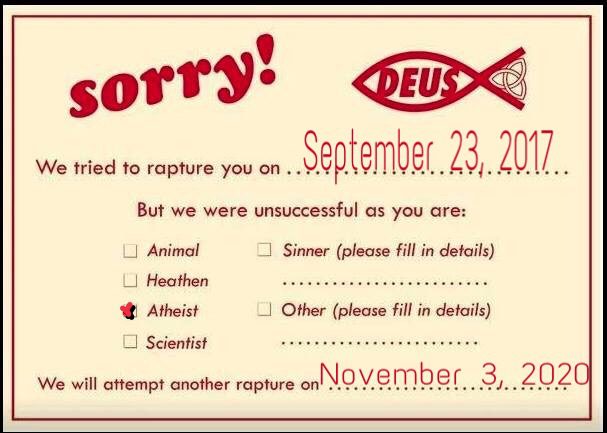

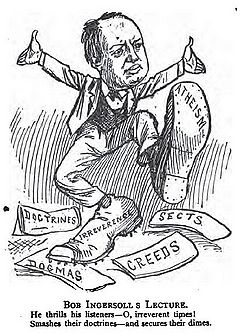 Let us be honest. Let us preserve the veracity of our souls. Let education commence in the cradle—in the lap of the loving mother. This is the first school. The teacher, the mother, should be absolutely honest.
Let us be honest. Let us preserve the veracity of our souls. Let education commence in the cradle—in the lap of the loving mother. This is the first school. The teacher, the mother, should be absolutely honest.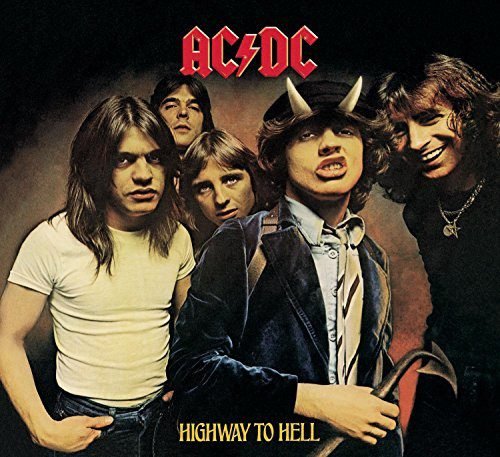
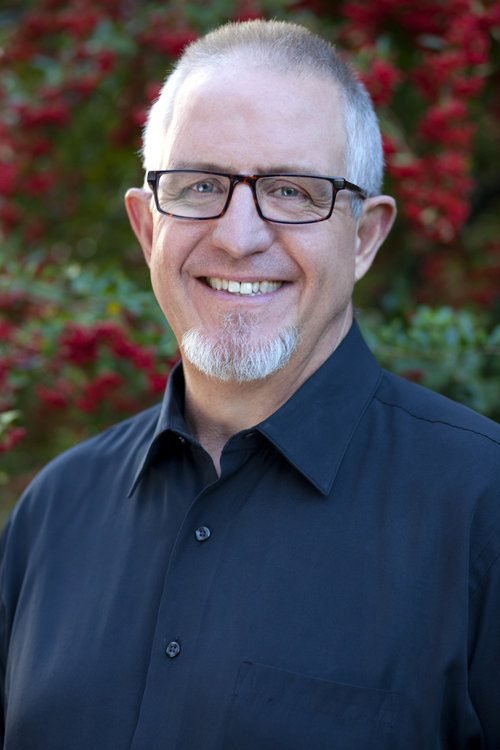
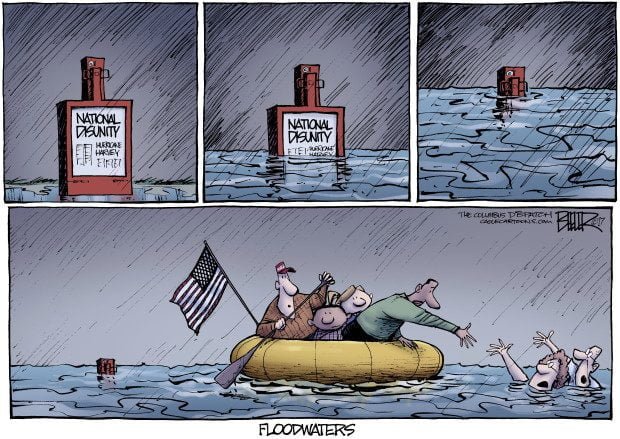
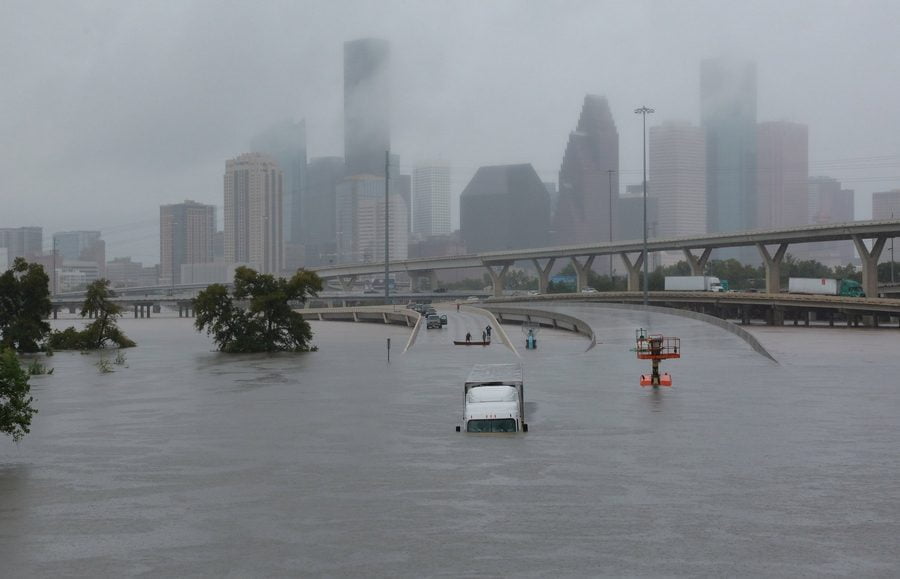
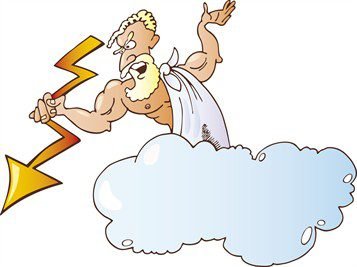 The Bible is clear on this matter, God is in absolute control of the weather:
The Bible is clear on this matter, God is in absolute control of the weather:
